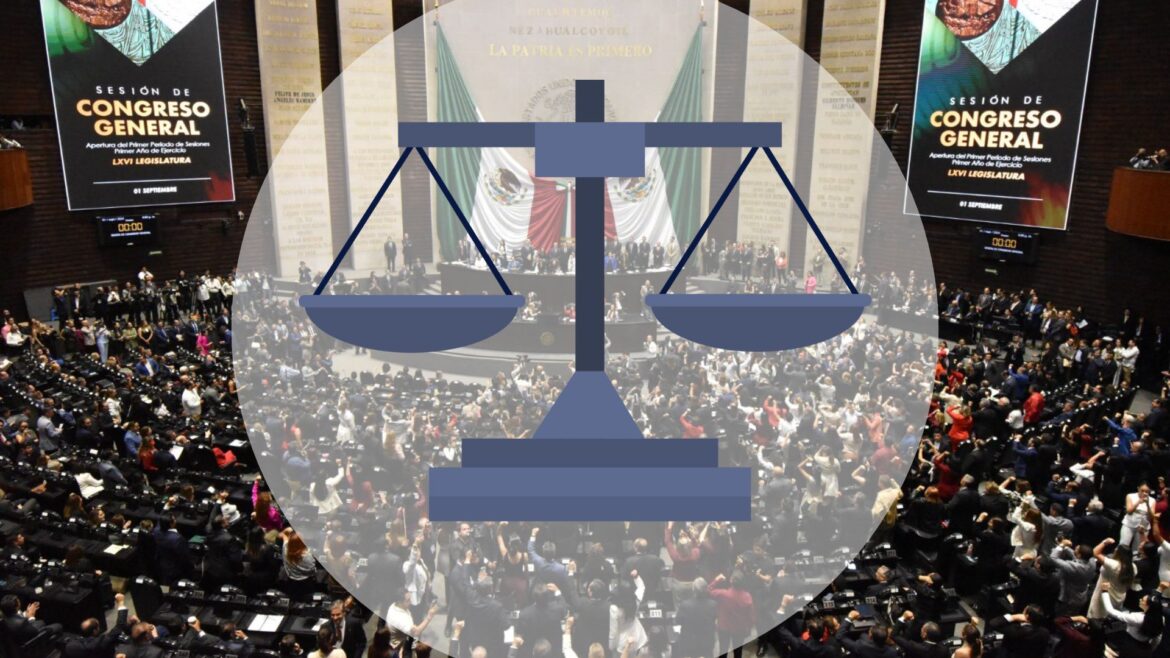Mexico’s controversial judicial reform, championed by President Andrés Manuel López Obrador, has sparked widespread protests and legal challenges. Despite opposition from judiciary workers and law students, the reform—aimed at electing judges through popular vote—passed swiftly through Congress. Critics fear it threatens the independence of the judiciary. What does this mean for Mexico’s justice system?
Following the approval of judicial reform by the Mexican Congress, the legislation swiftly passed through 17 state legislatures in a single day, marking the final step before its publication in the Official Journal of the Federation.
A group of judicial workers expressed their opposition to the reform and made attempts to reverse its approval, though with limited success.
The passage of the reform was marred by protests from judiciary workers and law students, who vocally opposed President Andrés Manuel López Obrador’s initiative. The reform significantly alters the process of judicial appointments, shifting towards a system of popular elections for judges. A major concern among critics was the perceived erosion of the judiciary’s independence from the other branches of government.
Opponents of the reform employed various legal strategies, including the filing of amparo lawsuits, in an effort to halt its progression. However, once the ruling party, Morena, and its allies secured a supermajority in Congress, the judicial reform was pushed through with minimal resistance.
In a dramatic turn, workers disrupted plenary sessions of the Senate and various state legislatures, including those in Baja California and Puebla. The National Association of Circuit Magistrates and District Judges (Jufed) warned that their resistance would continue and announced their intention to pursue a legal challenge through the Inter-American Commission on Human Rights (IACHR).
On Friday, September 13th, a judge from the Second District Court in Colima granted an amparo to Fundación Iris en Promoción de Defensa de Derechos Humanos, A.C., in an attempt to prevent the publication of the reform in the Official Journal of the Federation. Despite these efforts, the new legislation appears set to proceed.
Rejection of Amparo Challenges
On September 4th, a judge in Morelos issued a definitive suspension aimed at halting the reform’s approval in the Chamber of Deputies, thereby attempting to block a vote in the Senate. Nevertheless, the reform passed the upper house, with Senator Miguel Ángel Yunes Márquez of the PAN (Partido Acción Nacional) casting the decisive vote in favor of the legislation.
The Supreme Court of Justice of the Nation (SCJN) dismissed a request to rule on whether the Senate’s approval of the reform violated the amparo granted by the Morelos court. The SCJN declared that “there were no grounds to intervene as requested” and referred the case back to the Fifth Court in Morelos.
In another setback for opponents, the SCJN rejected a petition from a group of judges and magistrates seeking to disqualify three ministers—Lenia Batres Guadarrama, Yasmin Esquivel Mossa, and Loretta Ortiz Ahlf—from drafting any rulings related to the judicial reform. The three ministers are known for their close ties to Morena. The Court ruled the petition “inadmissible.”
A third legal challenge was brought by the Second Circuit Collegiate Court on labor matters, calling for the protection of judicial independence and the preservation of the current employment conditions for judges. The petition also called for safeguarding the separation of powers as enshrined in Article 49 of the Mexican Constitution. However, the SCJN found no basis for the claim and ordered the case closed.




